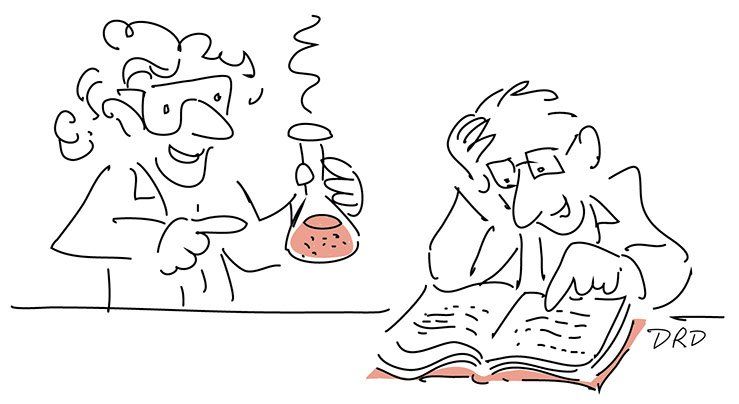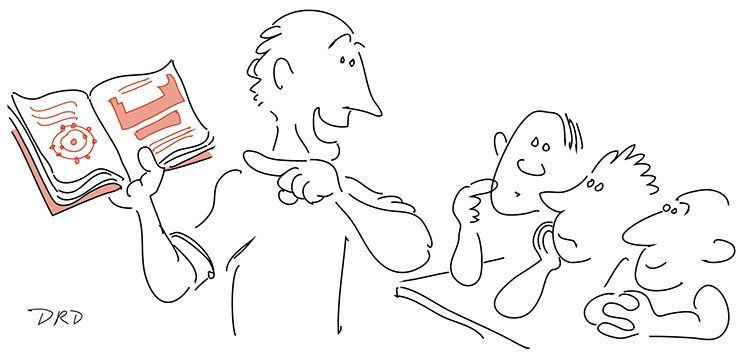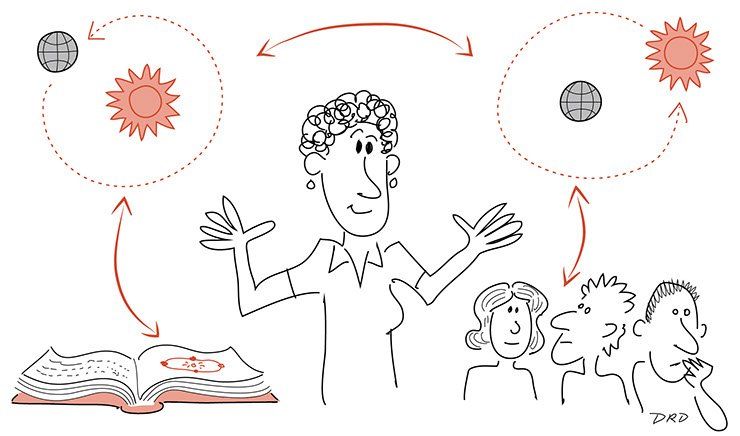Reading and Science Education
1. What's so important about reading in science education?
Many people believe that science education is all about hands-on activities and experiments. This emphasis on the doing aspect of science underwrites inquiry-based approaches to science education. Often, part of the argument for the inquiry approach is that students should be acting more like real scientists in the field or lab. But while hands-on activities may be extremely valuable for students of science, devaluing reading both cripples science education and misrepresents what real scientists do.
Reading is not only a crucial way for students to learn science content, it is also an important part of what professional scientists actually do. One study found that scientists and engineers spend over half of their working time reading, interpreting, and producing text. Without research, there is no science; but without communication, research would grind to a halt. Literacy enables vital inputs and outputs for research: read; research; write; repeat.
2. Why should science teachers teach disciplinary literacy?
Unfortunately, even students who make a strong start on literacy in the early elementary grades often don’t develop the skills they need to tackle science and other informational texts in the later elementary years. Students need special help to rise to the challenge of reading to learn science. They need not only general literacy but disciplinary literacy, skills specific to reading and producing texts in science.
Science teachers often hold a tacit “vaccination model” of literacy, an assumption that ELA teachers will dose kids with enough general literacy to be ready for science class. However, science teachers themselves are in the best position to help their students grow in the disciplinary literacy specific to science. Students will do best when their science teachers regard teaching science literacy as part of their job.
3. What pedagogical content knowledge is needed for teaching disciplinary literacy?
To be effective, science teachers need to know more than the subject matter they teach. They also need to know how to teach it well; in the lingo of the trade, they need pedagogical content knowledge. That pedagogical content knowledge includes understanding what preconceptions students typically bring to the science classroom; understanding which new science content will be most challenging for students; and knowing what teaching strategies are likely to help students give up misconceptions and grasp new ideas. For the purpose of helping students learn disciplinary literacy in science, pedagogical content knowledge also includes an appreciation of the special difficulties science texts often pose.
Development of Reading to Learn in Science was led by Jonathan Osborne (Stanford University) through a SERP collaboration. Support for Reading to Learn in Science was provided by the Institute of Education Sciences, U.S. Department of Education through grant number R305F100026. The information provided does not represent views of the funders.
The emphasis of the RTLS project is on disciplinary literacy at the 4th to 8th grade level.
This work is licensed under a Creative Commons Attribution-NonCommercial-ShareAlike 4.0 International License.



